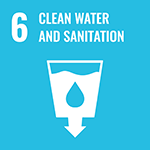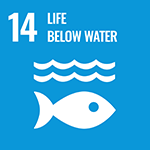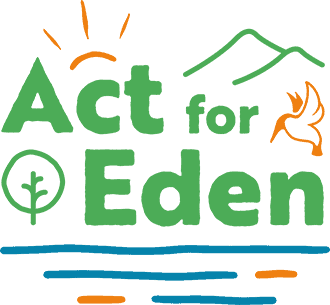![]()
Clean up your act
Why?
Many of the most popular and well-known cleaning products, toiletries and cosmetics contain ingredients that are / can be harmful to the aquatic environment - some with long-lasting effects.
Many of the cleaning products (detergents) and cosmetics we use end up being washed down the plughole, ultimately ending up in our rivers and seas. Not all are biodegradable, and many are not removed from the water in sewage treatment works before being discharged into a river.
Cleaning products (detergents)
Some ingredients in household cleaning products are toxic. Most are based on petrochemicals from the oil industry and most use antibacterial chemicals and synthetic fragrances. None of these ingredients are necessary for a sparkling clean house, clothes or body. Many are harmful to the aquatic environment and animals within it.
Some ‘nasties’ to look out for in cleaning products include surfactants, parabens, phthalates, triclosan, phosphates, sulphates (SLS, ALS), and plastics.
Hidden plastics in toiletries and cosmetics
You may have heard that microbeads (tiny pieces of plastics put into toothpaste, face & body scrubs and abrasive cleaning products) were banned in UK in 2018. Sadly, the plastic problem doesn’t stop there though, as other microplastics and liquid plastics are still allowed in other products.
Microplastics and - it’s a mouthful - synthetic ‘non-biodegradable or poorly degradable’ liquid polymers (essentially, these are water-soluble, liquid microplastics) are currently found in more than half of all everyday toiletries and cosmetics. They can be found in toothpaste, mascaras, lipsticks, body lotions and hair products, nail polish and sunscreen as well as cleaning products and paints.
Cleaning up your act is easier than you think.
Here are some ideas to get you started.

by Maria Kray on Pixabay
You can do it
Here's how

Pure and simple
Make your own household cleaning products from simpler products such as white vinegar, soda crystals and citric acid, which can help with most cleaning jobs around the home.
Down the drain
It’s tempting, but don’t wash cooking oils and fats down the plughole before cleaning. They need to be properly disposed of otherwise they can clog up wastewater pipes and sewage systems … creating the dreaded fatberg!
Use a paper towel to mop up trays and pans and then put it in the bin.
Less is more
Use as few products as you can and use sparingly. When cleaning, think little and often.
Choose river-friendly products
Make the swap to environmentally-friendly (ecological) cleaning products that are free from the top ‘nasties’. Simply switching just one product can make a huge difference, especially if we all do it.
Be a savvy shopper:
Check which brands are also looking out for wildlife and making ethical choices in the production of their products. Popular and readily available brands are Bio-D, Eco-Egg, Ecoleaf, Ecover, Ecozone, Faith in Nature. Some supermarkets now have their own eco-products, but check the labels carefully.
Ethical Consumer provides a huge amount of advice for free, and a subscription gives you access to their ratings of a huge range of products.
.
Off the mains
Not everyone in the Eden Valley is connected to the public sewer system. Some campsites and properties have a septic tank or a package sewage treatment system instead.
Picking the right cleaning products is critical to ensure that your tank or system remains in tip-top condition and doesn’t pollute the river. Only use products that say ‘Suitable for septic tanks’.
For more info and advice about private sewage systems visit the Call of Nature website.
![]()
Inspired?
Join the growing number of people who are making a promise to Act for Eden and make yours today to clean up your act!
![]()
I promise to
Clean up my act
and use river-friendly cleaning products
U.N. Sustainable Development Goals


The action that you’re taking as part of Act for Eden will not just make a difference in your local river and community, it will help transform the world!
This promise has been carefully chosen to meet one or more of the Sustainable Development Goals (SDGs). These are a set of 17 goals set out by the United Nations to focus efforts around the world in order to “achieve a better and more sustainable future for all.” (UN SDG website)
Although major actions are needed by governments, cities and local authorities, it starts with each and every one of us. By keeping your promise to Act for Eden, you are already living and working more sustainably - which is great news for our planet.
You‘ll also be part of a growing community of like-minded people who together, are leading by example and generating a force for change, able to push those in authority to make the transformations required.
All this just by swapping some of your household products for river-friendly ones - awesome isn't it!
